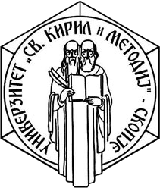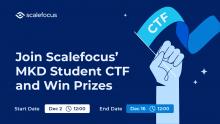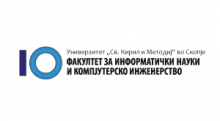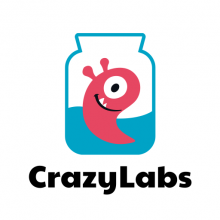IT Management (3 +1+1)
IT Management (3 + 1 + 1)
1. General Information
Postgraduate studies in Information Technology Management aim to provide quality and top European education and training of highly educated staff with in-depth knowledge of methods and techniques for managing ICT projects and systems. Upon completion of their studies, these staff will be able to take responsible positions in the processes of planning, design, management and monitoring of ICT projects and systems, including their business aspects.
The program in Management Studies in Information Technology is compatible with the relevant studies offered at most of the world's universities that support this topic and enable student mobility.
- Name of the proposer: University "Ss. Cyril and Methodius University in Skopje, Faculty of Information Sciences and Computer Engineering - FINKI
- Study Program Name: Information Technology Management
- Scientific-research area: 2 technical-technological
- Field
- The value of postgraduate studies is 60 ECTS credits .
- Duration of studies: 2 semesters .
- One academic year consists of two semesters lasting 30 weeks (1 semester = 15 weeks).
- Admission Requirements : Students in Information Technology Management can enroll in graduate students who have 240 or 180 undergraduate credits.
- Introductory layer : Students who have earned less than 240 credits during their studies are offered a set of differential introductory courses. After their successful realization, the student acquires the right to continue with the first semester of postgraduate studies.
- First semester: 2 mandatory courses, 2 elective courses in the field.
- Second semester: 1 mandatory subject in the field, 1 elective subject in the field and 1 elective subject from the list of UKIM and final project - master's thesis (18 ECTS)
- 1 ECTS credit corresponds to 30 hours of total work engagement
- The number of contact hours is 4
Upon successful completion of the postgraduate studies in Information Technology Management, the successful student will possess the following general abilities and qualifications:
- Ability to work in interdisciplinary teams
- Power of analysis and synthesis
- Power to apply knowledge in practice
- Power to generate new ideas (creativity)
- Power of learning
- Ability to critique and self-critique
- Ability to make decisions
- Knowledge of English
- Research skills
Upon successful completion of the postgraduate studies in Information Technology Management, the successful student will possess the following specific abilities and qualifications:
|
Knowledge and Understanding
|
Provides in-depth knowledge and understanding of the theoretical foundations of software and innovation project management, information systems and risk management and other disciplines. Acquiring the necessary knowledge in the field of management with ICT systems and projects. Development of advanced skills in planning, design, design, management, testing, and implementation of ICT systems and projects. Demonstrates a high level of professional competence in the analysis of empirical data in the fields of business, industry, economics and government.
Work with applied projects to manage projects, resources, money and people. Governs the latest industry standards and best practices, as well as opportunities for improvement and future development in the area. |
|
Applying knowledge and understanding
|
Can apply knowledge and understanding for professional development in a narrower area of Information Technology Management. Demonstrates skills and knowledge necessary for the individual to be competent in managing IT systems and projects at a high level. The competenciesQualify with solid management and technical foundation with the ability to include a selected range of broader aspects of Management in Information Technology and the like that will meet the needs of the professional in this field with constant and rapid development.
In-depth management knowledge required for effective work of ICT manager, independent specialist or member of specialized team. |
|
Ability to evaluate |
Demonstrates a commitment to self-improvement and continuous professional development
Demonstrates in-depth knowledge of advanced analysis and design techniques in the fields of Information Technology Management. Demonstrates knowledge of best practices for improving productivity and mutual understanding in business organizations taking into account personal, social, scientific and ethical aspects. Demonstrates the ability to make managerial decisions independently and link business practice with application solutions. |
|
Communication Skills |
Demonstrates the ability to communicate with colleagues and work in a team through a high level of awareness of the importance and power of communication. Illustrates effective exchange of information, ideas and reasoned proposals. Demonstrates high ability to work and lead multidisciplinary teams Demonstrates ability to plan and manage time at managerial level and professional socialization and conflict resolution. Recognizes complex organizational structures and the need to restructure them, understands their impact on effectiveness and efficiency in combination with modern technologies.
|
|
Learning Skills |
Demonstrates an understanding of the basics of research methodology, with the ability to evaluate, design and conduct research in the field, formulate, plan a research project and communicate in depth on a topic.
Demonstrates the ability to reasonably evaluate and generate ideas with creative and critical thinking, mastering new theories, models, techniques and technologies, while appreciating the need for continuous professional development. Able to select and understand procedures and methods for structuring, consolidating, and handling information and data in an environment. Has high self-confidence and independence, proactivity and self-awareness to perform and delegate tasks and manage further career. |
Acquired title: Master of Information Science and Computer Engineering in Information Technology Management. & Nbsp;
2. Introductory layer
The introductory layer is intended for students who study for less than four years or have earned less than 240 credits from previous studies.
Table 1: List of introductory layer items
|
Code |
Subject |
Weekly fund |
Semester |
ECTS |
|
|
1 |
CSEW501 |
2 + 2 + 1 |
winter |
6 |
|
|
2 |
CSEW705 |
2 + 1 + 2 |
winter |
6 |
|
|
3 |
|
Selected from Table 2 |
|
winter |
6 |
|
4 |
|
Selected from Table 2 |
|
winter |
6 |
|
5 |
|
Selected from Table 2 |
|
winter |
6 |
|
6 |
CSES811 |
2 + 1 + 2 |
summer |
6 |
|
|
7 |
CSES634 |
2 + 2 + 1 |
summer |
6 |
|
|
8 |
|
Selected from Table 2 |
|
summer |
6 |
|
9 |
|
Selected from Table 2 |
|
summer |
6 |
|
10 |
|
Elective ** |
|
summer |
6 |
* If the student has passed the course in his / her undergraduate studies, he / she will have to choose another course from the list of elective courses from the introductory layer (Table 2).
** The course can be selected from the list of electives from Table 2 or from the university list of free electives
Table 2: List of introductory electives
|
Code |
Subject |
Weekly fund |
Semester |
ECTS |
|
|
1 |
CSEW528 |
2 + 1 + 2 |
winter |
6 |
|
|
2 |
CSEW505 |
Software requirements analysis |
2 + 2 + 1 |
winter |
6 |
|
3 |
CSEW701 |
2 + 2 + 2 |
winter |
6 |
|
|
4 |
CSEW704 |
Design of integrated systems |
2 + 1 + 2 |
winter |
6 |
|
5 |
CSEW511 |
Software design and architecture |
2 + 1 + 2 |
winter |
6 |
|
6 |
CSEW514 |
2 + 1 + 2 |
winter |
6 |
|
|
7 |
CSEW515 |
Computer Ethics |
4 + 0 + 0 |
winter |
6 |
|
8 |
CSEW310 |
2 + 2 + 1 |
winter |
6 |
|
|
9 |
CSES631 |
2 + 1 + 2 |
summer |
6 |
|
|
10 |
CSES625 |
IS development process |
2 + 2 + 2 |
summer |
6 |
|
11 |
CSES612 |
2 + 2 + 2 |
summer |
6 |
|
|
12 |
CSES610 |
2 + 1 + 2 |
summer |
6 |
|
|
13 |
CSES617 |
Business Process Modeling |
2 + 1 + 2 |
summer |
6 |
|
14 |
CSES606 |
2 + 1 + 2 |
summer |
6 |
|
|
15 |
CSES205 |
2 + 2 + 1 |
summer |
6 |
|
|
16 |
CSES628 |
Service Oriented Architectures |
2 + 2 + 2 |
summer |
6 |
|
17 |
UKIM-I |
Selection from University list of free courses |
|
|
|
After successfully completing all ten courses and achieving 60 credits, the student with previously acquired 180 ECTS credits (or completed three-year studies) continues with the subjects from the second academic year of postgraduate studies.
Table 1: List of Postgraduate Courses
|
|
Code |
Item name |
Status |
Semester |
ECTS |
П |
А |
Л |
|
1 |
ITMW01 |
M |
winter |
6 |
2 |
1 |
0 |
|
|
2 |
ITMW02 |
M |
winter |
6 |
2 |
1 |
0 |
|
|
3 |
|
Elective |
E |
winter |
6 |
|
|
|
|
4 |
|
Elective |
E |
winter |
6 |
|
|
|
|
5 |
|
Elective |
E |
winter |
6 |
|
|
|
|
6 |
ITMS01 |
M |
summer |
6 |
2 |
1 |
0 |
|
|
7 |
|
Elective |
E |
summer |
6 |
|
|
|
|
8 |
|
Master Thesis |
M |
summer |
18 |
|
|
|




